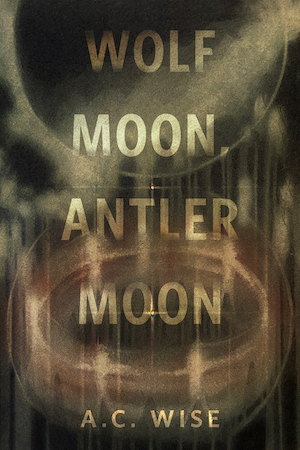Three weddings. Three funerals. Alessa’s gift from the gods is supposed to magnify a partner’s magic, not kill every suitor she touches.
We’re thrilled to share an excerpt from This Vicious Grace by Emily Thiede, out from Wednesday Books on June 28.
Three weddings. Three funerals. Alessa’s gift from the gods is supposed to magnify a partner’s magic, not kill every suitor she touches.
Now, with only weeks left until a hungry swarm of demons devours everything on her island home, Alessa is running out of time to find a partner and stop the invasion. When a powerful priest convinces the faithful that killing Alessa is the island’s only hope, her own soldiers try to assassinate her.
Desperate to survive, Alessa hires Dante, a cynical outcast marked as a killer, to become her personal bodyguard. But as rebellion explodes outside the gates, Dante’s dark secrets may be the biggest betrayal. He holds the key to her survival and her heart, but is he the one person who can help her master her gift or destroy her once and for all?
Attraverso la Finestra Divina, la luce riduce i demoni in cenere.
Through the Divine Window, light burns demons to ashes.
Three weddings.
Three funerals.
A better person would have been devastated, but Alessa bowed her head to hide dry eyes as she knelt before the jewel-encrusted coffin on the altar. The temple beneath the Cittadella smelled of mildew and death, the air thick with dust motes drifting like the ghosts of fireflies.
Buy the Book


This Vicious Grace
She would cry. Later. She always did. Being widowed at eighteen was tragic, after all, and none of her partners had deserved to die. Still, it was difficult to muster tears for yet a third time.
Hugo, her third Fonte and the unfortunate body before her, had insisted it was only nerves when his hand trembled in hers. She should have known better. She had known better. But the gods had chosen her, and she’d chosen him. So, even knowing her touch might be his last, she’d reached for him a second time.
Alessa Paladino, divine weapon of the gods.
Her latest wedding dress was packed away, traded for a mourning gown and knee-high boots, with a black mantilla over her hair. And gloves, of course. Always gloves. Still, the dank chill reached for her bones. Even on a sunbaked island, the sun couldn’t warm what it never touched.
Cupping her hands as though in prayer, Alessa brewed a minuscule wind funnel between her palms. The faint echo of Hugo’s gift only lasted a moment, but she offered it back to him anyway. The empty space it left behind felt like penance.
Her knees ached, but she didn’t stand until the last stragglers found their seats. It wasn’t easy. Every minute spent mourning was one she didn’t get to spend choosing her next Fonte, and she didn’t have time to spare. Or Fontes, for that matter.
On one side of the aisle, the twelve members of the Consiglio watched her with inscrutable eyes. Always watching. Always waiting. First, for her to be old enough to choose a partner. And then, for her to choose another. And another after that. Soon, they’d summon her next victim.
Partner. Her next partner.
She had to get it right this time. The Consiglio would have her next choice dragged to the Cittadella at sword-point if needed, but she wanted someone willing.
On her way to her seat, Alessa paused to curtsy before Renata Ortiz, the previous Finestra, whose power had winked out the day Alessa’s blossomed five years ago. Renata nodded, cool and aloof, while her Fonte, Tomohiro Miyamoto, offered a sympathetic smile. They were a good pairing. A great pairing. Exactly what Finestra and Fonte should be.
A familiar pull of envy threatened to drag Alessa under as they laced their hands together.
She’d give anything for a hand to hold. Or a hug. She would kill for a hug.
Literally.
Alessa took her seat, pressing a fist to her mouth before a sharp inhalation became a giggle, or worse, a sob. Stiff, black fabric pulled across her chest as she steadied her breathing. If she’d known how often she’d need one, she would have asked for a new mourning gown after the first wear.
Adrick slid in beside her, tugging his lapels and doing his best to look forlorn. “No weeping for good old Hugo, little sister?” he murmured, barely moving his lips. “Lucky for me, there was an open seat beside you.”
“There’s always an open seat beside me.” Alessa squeezed her gloved hands together in a vain attempt to warm her fingers. Renata shot Alessa a look of warning from across the aisle.
It wasn’t her fault Adrick didn’t respect rules. He might even be willing to hug her, but she’d never ask. A Finestra wasn’t supposed to touch anyone but their chosen Fonte until after Divorando. And it was too dangerous to chance. The thought of her twin brother laid out on the altar turned her stomach.
He should’ve sat somewhere else. The Finestra was expected to sever all ties from her previous life. Above and apart. Always. She wasn’t even supposed to think of him as her twin anymore, and she definitely wasn’t supposed to speak to him.
“Picked the next one yet?” Adrick signed as the choir began rustling in place. Sort of. Their Nonno was Deaf, so they were fluent in Sign language, but the “whispered” half-signs he’d shaped in his lap were a bastardization of language only she could interpret. Papa would be mortified. But Papa wasn’t there. And he wasn’t her papa anymore.
“Still deciding,” she signed back.
“Better hurry,” he said, switching to a hoarse whisper. “A dozen fled Saverio in the past month.”
Dread pooled in her stomach. She’d lost track of how many eligible Fontes remained on the island, but she couldn’t afford to scare off more. She resisted the urge to turn and see who was left.
All Fontes were blessed at birth with defensive magic—fire, wind, water, earth, electricity, and so forth—and thus they were respected and revered, considered a precious resource whether they were chosen to serve or not. Each Fonte received a generous annual stipend, was exempted from military duty, and was protected from harm.
Until they weren’t.
“Good riddance,” Alessa hissed. Anger was safer than panic, and she knew her duty, which meant not falling apart where someone might see. “Anyone who’d abandon their people isn’t worthy of being my Fonte.”
Without a Finestra to absorb and magnify their power, a Fonte’s gift was fairly weak, but at least they had useful powers. Not like hers, which was basically worthless without a partner to draw from.
So she couldn’t argue with Adrick’s response of “Better an unworthy Fonte than none at all.”
She risked a quick glare. Aside from his eyes—green on a good day, hazel on most—her brother was nothing like her. Tall and lanky, with tanned skin and golden curls, Adrick strolled through life with an easy charm, while she had their mother’s dark waves and creamy skin that burned easily, and her ease and charm had been snuffed out by years of rules and isolation.
“You could be more encouraging,” she whispered.
Adrick appeared to consider the possibility. “Someone has to laugh about it.”
“It isn’t funny.”
“Of course it isn’t.” There was a slight tremble to his voice. “But if I think about it too seriously, I’d never get out of bed.”
Alessa swallowed. When her first Fonte, Emer, died, Adrick had stood outside the Cittadella’s walls belting out bawdy sea chanteys in his best pirate voice for hours until her sobs became hiccups of laughter. Adrick was never serious, no matter how dire things became, but after years of wishing he’d take her situation seriously, she wasn’t sure she could handle it if he did.
A soloist began the Canto della Dea in the common tongue, soon joined by another in the ancient language, then others, until a dozen languages wove a harmony as intricate as the community.
Together, we protect. Divided, we falter.
Wizened old Padre Calabrese shuffled up the stairs as the last note died, clearing his throat repeatedly even though no one was speaking.
“The gods are cruel but merciful,” he began.
Easy for him to say.
“In the beginning, Dea created humankind, but Crollo insisted we were too flawed, too selfish, to endure. When Crollo sent fire, Dea made water to quench it. He brewed storms, and she granted shelter. And when Crollo vowed to cleanse the earth and begin anew, Dea challenged him, because she had faith in us. ‘Alone,’ she said, ‘a person is a thread easily snipped. Intertwined, we are strong enough to survive.’”
Alessa squirmed on the unyielding bench. It would be her luck to lose feeling below the waist and topple over when she stood to leave. Dea really should have sweetened the deal by throwing in some tolerance for discomfort with the great and deadly power.
Sensing the Padre’s attention shift her way, Alessa sat up straighter.
“And so, Dea and Crollo made a wager: Crollo could send his devouring minions, but Dea would raise sanctuary islands from the sea where the faithful could strive to live in harmony, proving their worthiness and defying Crollo’s cynicism. And because she loves us, she armed her children with gifts…”
Alessa tried to look as gift-like as possible as furtive glances flicked her way.
While it was all true, and obviously they owed Dea a debt, the goddess could have chosen a simpler solution. An impenetrable shield, perhaps. Or made the islands invisible. Maybe she could have negotiated Crollo down to one planetwide scourge, and they would’ve been done with this nonsense a half a century ago. But oh, no, in her infinite wisdom, Dea decided to teach her children about community and partnership by creating saviors who couldn’t save alone.
The divine pairing existed as a constant reminder that shared strength was their path to salvation. Hence, a Finestra could only magnify someone else’s gift.
Hand in hand with an opera singer, a Finestra could bring the harshest music critic to his knees. For a few minutes after touching an archer, a Finestra could hit every bull’s-eye. And paired with a Fonte, a Finestra could defeat an army of demons sent by the God of Chaos.
At least, that’s how it was supposed to work.
When Alessa first stood before the Consiglio, the row of wizened elders had made it sound as easy as one, two, three.
- Choose a Fonte.
- Do not kill them.
- Amplify their magic to save everyone and everything on Saverio—or become the first to die.
Alessa’s gaze slipped to the glittering coffin.
Well, not the first.
Even now, some insisted the deaths were a good omen. Terri- bly sad, of course, but reassuring. A Finestra so powerful she accidentally killed her first Fonte? They would be well-protected in the siege. And her second? Well, accidents happened. Besides, she was young, and these things took time. Surely, she’d be more careful with the next. But after three funerals, Alessa’s strength didn’t feel like a promise of victory anymore, and time was running out.
The service concluded with, “Per nozze e lutto, si lascia tutto, però chi vive sperando, muore cantando.” In weddings and mourning, one lets go, but he who lives with hope dies singing. It might have been the saddest thing she’d ever heard. Hugo certainly hadn’t left the world mid-note.
As the pallbearers made their way down the aisle, guests reached out to brush the glossy surface of the coffin.
Alessa did not. Spirit or ghost, surely whatever was left of Hugo would prefer she kept her distance.
As the casket passed beneath an archway of carved stone gods, the crowd murmured, “Rest in the company of heroes,” and he was gone.
Excerpted from This Vicious Grace, copyright © 2022 by Emily Thiede.










